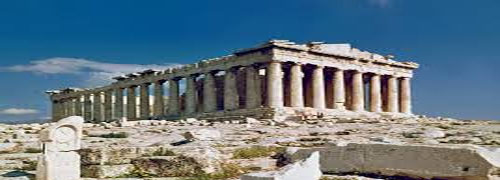Family Life
Geography
Rise of City States
Architecture
Resources
The term Ancient, or Archaic, Greece refers to the time three centuries before the classical age, between 800 B.C. and 500 B.C.—a relatively sophisticated period in world history. Archaic Greece saw advances in art, poetry and technology, but most of all it was the age in which the polis, or city-state, was invented. The polis became the defining feature of Greek political life for hundreds of years.
"Greek Architecture: Living and Working Spaces."
Ancient Greece Architecture, Living and Working Spaces. Web. 02 Oct. 2014.
Emigration was one way to relieve some of this tension. Land was the most important source of wealth in the city-states; it was also, obviously, in finite supply. The pressure of population growth pushed many men away from their home poleis and into sparsely populated areas around Greece and the Aegean. Between 750 B.C. and 600 B.C., Greek colonies sprang up from the Mediterranean to Asia Minor, from North Africa to the coast of the Black Sea. By the end of the seventh century B.C., there were more than 1,500 colonial poleis.
Each of these poleis was an independent city-state. In this way, the colonies of the Archaic period were different from other colonies we are familiar with: The people who lived there were not ruled by or bound to the city-states from which they came. The new poleis were self-governing and self-sufficient.
